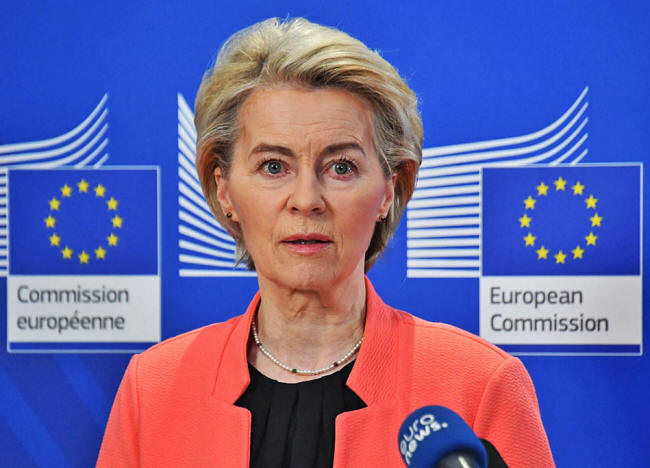|
by Thomas Fazi from ThomasFazi Website
Ursula von der Leyen
annuls the European Commission's decision to refuse to disclose the text messages between von der Leyen and Pfizer CEO Albert Bourla...
EU Commission President
Ursula von der Leyen, and the
institution she represents, have just suffered the first legal
setback in the ongoing "Pfizergate"
scandal.
According to one analysis, the price per dose she agreed was 15 times higher than the cost of production - meaning that the EU,
When the New York Times, which first broke the story in 2021, requested the messages under EU transparency rules, the Commission refused, claiming it did not possess them and that texts, due to their "short-lived, ephemeral nature", were not subject to its record-keeping requirements.
The Commission also turned down similar requests by the EU Ombudsman and the European Court of Auditors.
In January 2023, the newspaper sued the
Commission, arguing that the refusal violated EU law concerning
public access to official documents, regardless of format.
The Court found that the Commission,
It emphasized that the Commission could not
simply claim it did not hold the messages without providing credible
evidence to explain why they were unavailable.
The Court further noted that the New York Times had provided "relevant and consistent evidence" confirming the existence of the text messages, including Bourla's own statements about their role in the vaccine negotiations.
Indeed, the Commission's lack of clarity on whether the messages were deleted was also criticized.
Notably, after years of ambiguity even about the
existence of the messages, the Commission's lawyers only
acknowledged them last November.
The Commission now must decide whether to appeal
the ruling or comply with it by providing the messages or face
further questions about their alleged "deletion".
The ruling is particularly striking given that it comes from the European Court of Justice - an institution traditionally seen as staunchly pro-EU and typically reluctant to issue judgments that might undermine the authority of the bloc's supranational bodies.
In this case, however, the Commission's
violations appear to have been simply too blatant to overlook.
In recent years, the Commission has expanded the scope of its executive action in virtually every field, including many that were previously the exclusive preserve of EU member states and over which the Commission has no formal competence:
And under von der Leyen, these powers have expanded to an unprecedented degree, leading to an almost,
...as Politico
wrote, and winning von der Leyen
the nickname "Queen Ursula" in Brussels.
The European Public Prosecutor's Office,
tasked with investigating serious financial crimes against the EU's
financial interests, confirmed that it has been
investigating the Commission on its
handling of the vaccine procurements.
|


